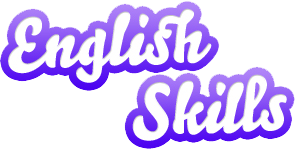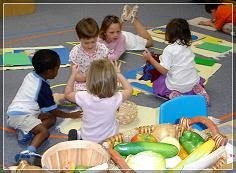
¿Porqué aprender inglés?
a) El idioma inglés tiene más de 1500 años de antigüedad.
· Siglo VI hasta el XVII: reducido a las islas británicas
· Siglos XVII al XIX: expansión colonial en América, África, Asia y Oceanía.
· Siglo XX: Auge paralelo al dominio de Estados Unidos en la política internacional.
· Siglo XXI: Internet.
b) Es un idioma que nos rodea, y por extensión su cultura.
· En la ropa
· En la música moderna (radio, televisión, discotecas,...)
· En televisión, especialmente las cadenas vía satélite.
· En el cine: estilo de vida, filosofía, visión peculiar de la historia, la moral, las relaciones sociales, modas, aficiones, relaciones amorosas,..
· En los deportes: vocabulario adoptado.
c) Herramienta de comunicación
· Electrodomésticos, electrónica
· Segundo idioma obligatorio en Europa: economía, cultura, conferencias, deportes, programas y proyectos comunes (Comenius,...)
· Viajes al exterior (comerciales o turísticos). Vocabulario básico que establece bases de comunicación: direcciones, rutas, alojamiento, comidas,...
d) Dimensión universal
· África, Asia, Norteamérica, Caribe, Oceanía.
· Europa (donde menos se habla como lengua materna)
· Navegación aérea y marítima
· Relaciones empresariales, científicas, telemáticas,...
2.- Nuestras dificultades para el aprendizaje del idioma inglés en comparación con otros países europeos.
a) El idioma español
· España tiene una población importante. 40 millones
· Es un idioma extendido en el mundo, especialmente en América.
· Posee una abundante producción literaria y de calidad, pretérita y actual.
· Los medios de comunicación nos presentan una oferta amplia: cadenas de radio, emisoras, periódicos, televisiones,..
· Oferta turística nacional atractiva y variada (fundamentalmente el sol y playa que buscan los centroeuropeos) que frente al húmedo y frío verano más el desconocimiento de otros idiomas y los prejuicios de inferioridad hace que tradicionalmente practiquemos el turismo nacional.
b) La situación política española tras la segunda guerra mundial
· Aislamiento internacional (lucha antifascista)
· Anglofobia (Gibraltar)
· Nos quedamos fuera de los planes de reconstrucción europea auspiciados por el plan Marshall.
· Ausencia del inglés del currículum escolar. ( Eisenhower en España 1959)
· Inicio del inglés en la enseñanza básica en los años 80 de manera generalizada.
· Estos factores determinan que la mayor parte de la generación de españoles/as que ocupan puestos de responsabilidad en empresas o en política se sientan angustiados por su conocimiento nulo o escaso del inglés, lo que les frena sus posibilidades de expansión o progresión personal. Se vive el inglés con ansiedad. Gran auge de las academias y escuelas de idiomas. “Este cursillo”.
c) Doblaje de películas
· Auspiciado en España tras la guerra civil (población analfabeta, manipulación de los diálogos)
· Existencia en pueblos con idiomas con menor población: (Portugal, Escandinavia, Países Bajos, ...)
d) Relación población-idioma propio-inglés
· Necesidad de abrirse al exterior en países cuya lengua –a nivel mundial- sólo se habla en su nación. Yugoslavia, Grecia, Portugal, Países Bajos, Dinamarca, Suecia,....
3.- Aspectos favorables al aprendizaje del idioma inglés en la actualidad. a) Estructura política europea: Muchos países de pequeño tamaño con legua diferente (11 lenguas). Se busca una lengua común de comunicación.
b) Las posibilidades de conocer otros lugares fuera de nuestro país nos obliga a utilizar un vocabulario básico. Es más fácil entenderse con hablantes no nativos.
c) La gramática inglesa, en lo fundamental, es más asequible que la nuestra, especialmente en la conjugación verbal, el morfema género en los sustantivos,...
d) La presencia del idioma inglés en todos los medios de comunicación, especialmente radio y televisión vía satélite.
e) El lenguaje de los juegos interactivos: consolas, videojuegos,...
f) La posibilidad de tener acceso a la prensa y revistas en inglés
g) El dominio del mundo informático en nuestra vida diaria.
h) La explosión de Internet: correo electrónico y navegación.
4.- Dificultades en el aprendizaje del idioma inglés en Murcia.
a) La fonética inglesa no se corresponde con la nuestra. (Silábica. método foto silábico)
b) Existencia de 12 vocales en inglés
c) Una misma vocal se pronuncia de manera diferente según los fonemas que le acompañen:
i. man
ii. talk
iii. read
iv. car
d) No se pronuncian algunas consonantes cuando van en grupo, en el final de una palabra o si son dobles.
i. all
ii. writer
iii. walk
iv. communicate
e) Dificultades en la pronunciación por el habla relajada murciana (panochinglis ) Problemas con los finales de palabra, especialmente con el fonema /s/ y las modulaciones en la entonación.
5.- El mundo de Internet a) ¿Qué supone?
· Uno de los inventos/herramientas que convulsionan la historia del hombre y que nos afecta en la vida cotidiana.
· Acceder a información próxima y lejana independientemente de donde te encuentres.
· La aparición de nuevas formas de comunicación, tales como el correo electrónico, la videoconferencia, el diálogo escrito instantáneo.
· La universalización de técnicas y recursos restringidos antes al ámbito militar y técnico.
· La simplificación de la informática, al alcance de cualquier usuario, sin necesidad de grandes conocimientos técnicos, el uso del ratón o de las pantallas interactivas, sensibles al tacto.
· Disponer desde tu hogar o lugar de estudio o de trabajo de una vasta documentación: tesis doctorales, prensa en cualquier idioma, información turística, información económica, diversión, juegos, actividades comerciales, solución a problemas de salud, estudios universitarios,...
b) Vocabulario básico informático:
· screen, keyboard, computer, mouse, joystick,
c) Vocabulario básico de internet:
· internet, web, on line, search, go, send, directory, chat, data, database, page, web site, click here, guide, e-mail, buy now, place, teleshop, news, windows, software, hardware, shareware, drivers, password, www, host, CD-ROM
d) Elementos básicos de Internet
· Definida como la red de redes, es un conjunto de ordenadores conectados entre sí (una red) y a su vez con otras redes todas interconectadas a través de los llamados “servidores”.
· La interconexión permite desde un puesto cualquiera (llamado cliente) :
o Trabajar con datos de otro ordenador
o Enviarse mensajes mutuamente
o Compartir datos, programas, sistemas de impresión
· Las características de la información son: cantidad inmensa y ausencia de censura.
e) Componentes fundamentales en el uso de Internet
En un principio el acceso a Internet venía fundamentalmente limitado por el conocimiento de la lengua inglesa (80-85 % del total del tráfico en la red). Hoy es creciente el número de páginas en español, pero el conocimiento de un inglés básico nos facilita el acceso a esa porción mayoritaria de información en dicho idioma.
Para cuando naveguemos en dichas páginas deberemos conocer al menos el significado de estas palabras:
o Search . Buscador. Es una ayuda esencial para encontrar un artículo determinado, una información. De una idea abstracta podemos ir concretando hasta lo más específico.
o Browser . Navegador. Programas que permiten navegar, moverse por la red, es decir acceder a un servidor de WWW y visualizar documentos de hipertexto.
o Hypertext . Tipo de documento que combina texto, imágenes, elementos multimedia (sonido, video, fotos,...), enlaces a otros documentos.
o Link. Enlace. Palabra, frase, dibujo, fotografía,... que está unida a otro texto o documento de cualquier índole o recurso de Internet.
o e-mail. Correo electrónico.
o FTP. File Transfer Protocol. Protocolo de transferencia de ficheros. Permite el intercambio de ficheros y programas.
o News . Son foros de debate agrupados por materias: ciencia, didáctica, arte, política, humor,...
o Chat. –chismorreo- Conversación escrita simultánea que se sigue a través de la pantalla.
Internet basic vocabulary
Internet
web
on line
search
go
send
directory
chat
data
database
page
web site
click here
guide
e-mail
buy now
place
teleshop
news
windows
software
hardware
shareware
drivers
password
www
host
screen
keyboard
computer
mouse
joystick
Internet Vocabulary
· Search
· Browser
· Hypertext
· Link
· e-mail
· FTP –File Transfer Protocol
· News
· Chat
· Web site
· WWW World Wide Web











